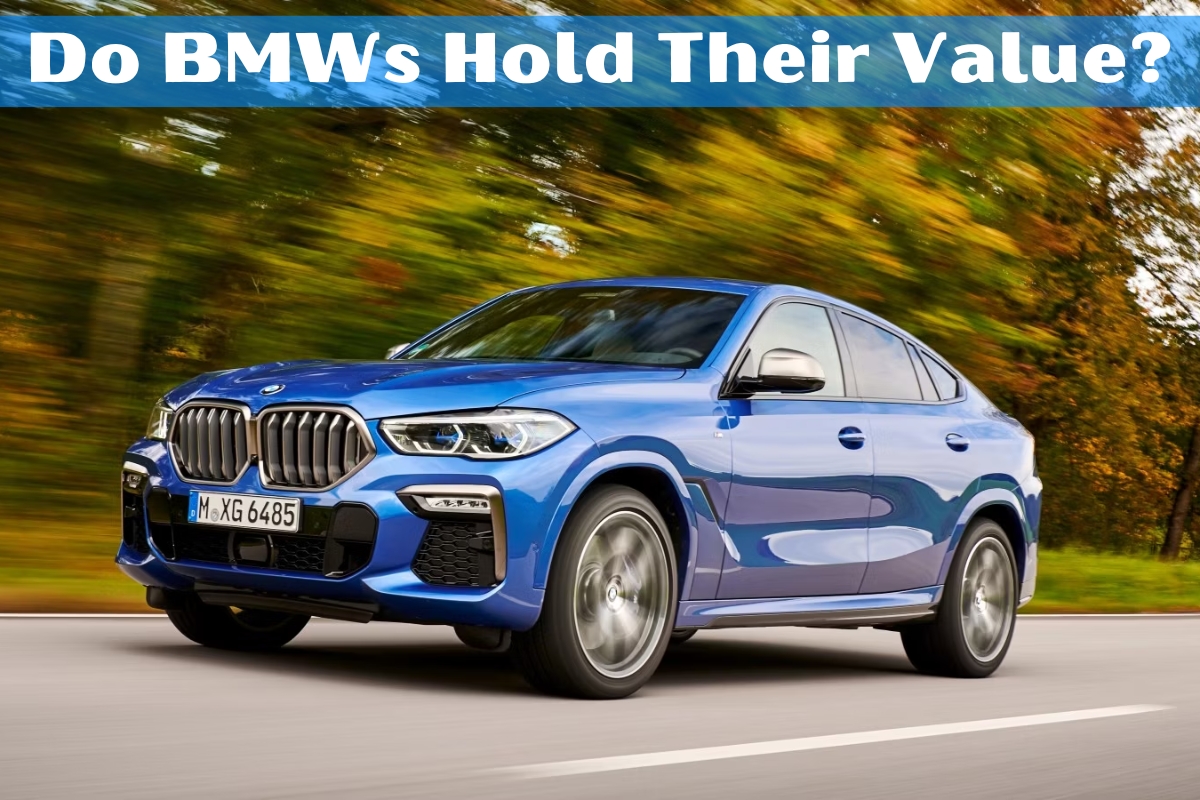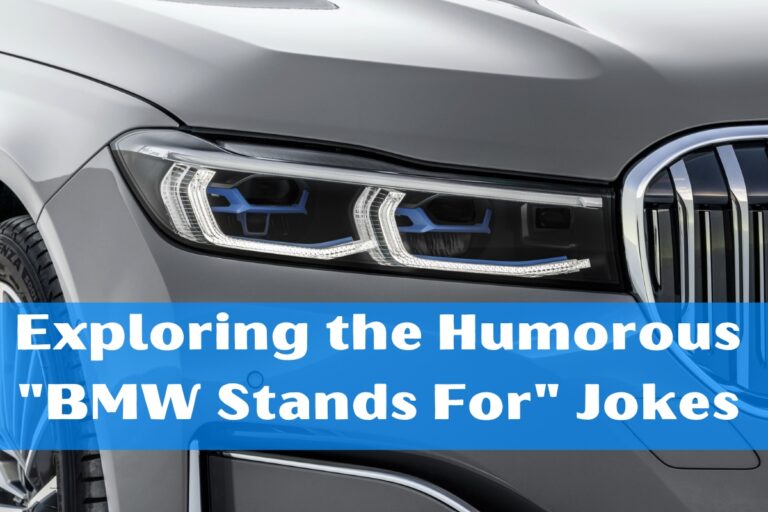Do BMWs Hold Their Value? The Truth About BMW Resale

If you’re in the market for a luxury vehicle, one major consideration is resale value. After all, you don’t want your expensive purchase to depreciate too rapidly. The simple answer is yes, BMWs tend to hold their value quite well compared to other luxury brands. This is largely due to BMW’s reputation for building high-quality, well-engineered vehicles with strong performance and desirability.
In this comprehensive guide, we’ll dive deep into the factors that affect BMW resale prices. We’ll look at data on which specific BMW models retain value best over 5 years. We’ll compare BMW depreciation rates to rivals like Mercedes, Audi and Lexus. You’ll also get tips on how to maximize your BMW’s future resale price if you plan to sell eventually. Let’s get started!
Factors That Affect BMW Resale Values
Several key factors influence how well any vehicle, including BMWs, will retain its value over time:
Brand Reputation and Perceived Quality: BMW has an excellent reputation as a luxury automotive brand known for superior vehicle quality, driving performance and prestigious cachet. This brand prestige helps BMWs hold value better than non-luxury mainstream brands.
Vehicle Condition and Mileage: Like any used vehicle, a BMW’s value decreases as the condition grows worse and mileage increases over years of ownership. Immaculate, low-mileage BMWs retain much more resale value.
Supply and Demand: Some BMW models are in higher demand than others on the used market. This increased demand results in better resale pricing. The latest, most popular BMWs tend to hold their values best.
Age of the Vehicle: Brand new BMWs suffer an initial hit of depreciation when you drive off the lot. After this first year, BMWs tend to holdvalue well for several years before depreciating more rapidly as they get quite old.
New vs Certified Pre-Owned (CPO): CPO BMWs are a great value proposition as they are low-mileage, inspected thoroughly, and include extended warranties. A new BMW’s value drops more rapidly initially.
Popular BMW Models That Hold Value Best
According to analysis by sites like iSeeCars, certain BMW models retain their resale value better than others after 5 years of ownership:
BMW X3 SUV: The compact luxury X3 SUV retains around 40% of its original value after 5 years, a very strong rating. Its versatility, premium features, and BMW’s SUV demand contribute to this.
BMW 2 Series: As one of BMW’s most affordable models, the 2 Series coupe/convertible retains about 52% of its sticker price after 5 years of ownership according to data.
BMW Z4 Roadster: This sleek, stylish luxury convertible retains around 46% of its initial price tag after 5 years, one of the best values in its segment.
BMW M2/M3/M4: BMW’s high-performance M-series models like the M2, M3 sedan and M4 coupe are in consistent demand. The M2 is estimated to retain over 61% of its value after 5 years.
How BMW Resale Value Compares to Other Luxury Brands
So how does BMW’s resale value and depreciation rate stack up against its primary luxury competition? Data indicates BMW outperforms some rivals while lagging slightly behind others:
Mercedes-Benz: Historically, Mercedes models have retained their value a bit better than BMWs on average, aided by brand prestige and demand.
Audi: BMW and Audi trade blows, with some Audi models retaining slightly higher percentages than BMW after 5 years based on data analysis.
Lexus: As Toyota’s luxury brand, Lexus vehicles are among the absolute best for retaining resale value over time. They outpace BMW consistently in this metric.
So in summary, BMWs hold their value very well overall for a luxury vehicle – better than mainstream brands and competitive with Mercedes and Audi. But Toyota’s Lexus tends to outperform BMW when it comes to superior resale pricing percentages.
Ways to Maximize Your BMW’s Resale Value
If you plan to sell your BMW down the road, either to a private buyer or dealer, there are some smart strategies to maximize its resale value:
Maintenance and Service Records: Properly maintaining your BMW according to the recommended schedule is critical. Also keep detailed service records to show prospective buyers the complete history.
Keep it in Great Condition: This goes without saying, but minimizing wear and tear, dents/dings, scratches, etc. will boost your BMW’s resale value substantially.
Buy Smart Model Choices: As shown earlier, some BMW models like the X3, M2 and Z4 tend to retain higher resale percentages than others over 5 years.
Consider Certified Pre-Owned: While new BMWs lose value rapidly, BMW’s CPO program can be a smart way to get a near-new, low mileage BMW that will hold value better than a similarly-aged used model.
BMW Depreciation Curves: When Do They Drop Most?
BMWs tend to follow a consistent depreciation curve during ownership:
Year 1: A new BMW will suffer its largest hit of depreciation, often around 20% or more, as soon as you drive it off the dealer lot.
Years 2-4: Over the next 2-4 years of ownership, BMWs will continue steadily depreciating but at a much slower rate than that initial first-year plunge.
Year 5 and Beyond: Starting around year 5, depreciation accelerates more rapidly as BMWs get quite old with higher mileage and more potential maintenance needs.
So from a resale value perspective, trying to sell your BMW around the 3-4 year ownership mark is often ideal timing to maximize your return.
Is Buying a New BMW a Smart Financial Investment?
Given that BMWs suffer major first-year depreciation hits like any new vehicle, buying a brand new BMW simply for investment purposes or to “flip” down the road is not advisable.
However, if you plan to own your BMW for at least 3-5 years, buying new can make sense financially. You’ll enjoy BMW’s latest models, features and performance while minimizing total depreciation over those first critical years of ownership before BMWs start dropping in value more rapidly.
For those looking for maximum cost savings and value retention, going the certified pre-owned (CPO) BMW route is often the wisest money move. You can buy a low-mileage, like-new BMW while avoiding that initial new car depreciation hit. CPO BMWs also include extended warranties and benefits.
The bottom line: BMWs make solid financial investments from a resale value perspective, as long as you don’t plan to immediately flip a brand new one. Buy new if you’ll own for several years, otherwise CPO is the way to maximize value.
The Verdict: BMWs Hold Their Value Very Well for a Luxury Brand
To summarize, BMWs absolutely hold their resale value at impressively high percentages compared to mainstream, non-luxury brands. BMW’s vehicles are very competitively priced in the luxury segment when it comes to depreciation and retaining value over 5 years.
Certain BMW models like the X3 SUV, 2 Series coupe/convertible, Z4 roadster and M high-performance cars have proven to retain their values best within the BMW lineup based on data analysis. Factors like brand equity, build quality, demand and model popularity all contribute to BMWs outperforming most brands for resale pricing.
While Lexus may edge out BMW in some cases for absolute best resale value retention, overall BMWs are among the luxury leaders you can buy with confidence that your vehicle will retain strong value over many years of ownership if you care for it properly.
When shopping for a BMW, consider factoring in this vehicle’s projected resale value versus its initial sticker price – the total cost of ownership could make a BMW one of the smartest luxury car investments you’ll make. With the right knowledge and care, your BMW should hold its value remarkably well to maximize your return whenever you decide to make that eventual sale.





